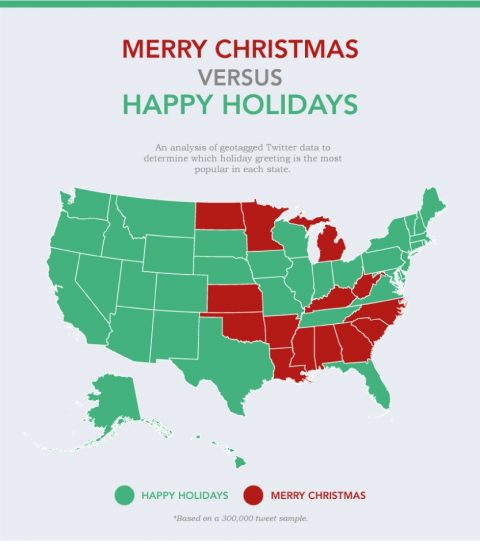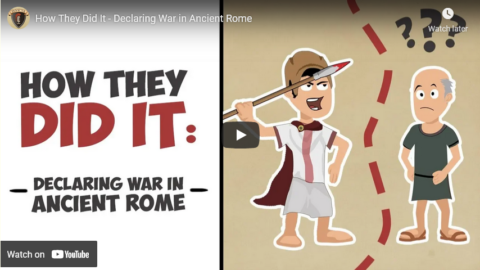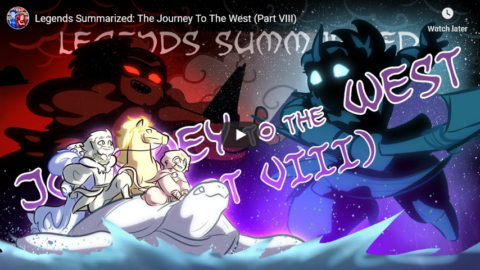Invicta
Published 24 Aug 2018The Romans were often at war but have you ever stopped to consider how exactly that was announced. Turns out the Romans had a complicated ritual associated with declarations of war aimed at making their casus belli apparent before the gods. I hope you enjoy this documentary on ancient government and religion!
Sources:
History of Rome Book I by Titus Livius
Handbook to Life in Ancient Rome by Lesley Adkins
The Rise of Rome by Anthony EverittMusic:
“Quirky Comedy” by 8th Mode Music#RomanHistory
#HowTheyDidIt
March 24, 2021
How They Did It – Declaring War in Ancient Rome
March 18, 2021
QotD: Leftists are generally rebelling against the man … even when they’re in charge
Leftism is, and always has been, an oppositional identity. “Rebelling” against “the Man” isn’t a bug, it’s a feature, and despite a half-century of practice, Liberals haven’t figured out how to handle the situation when they, themselves, are The Man. It doesn’t compute. Hence the strange spectacle of modern life, where Lefty controls everything but carries on like he’s a tiny, persecuted minority …
That’s where religion really comes in handy, and it’s no surprise that Leftism has so rapidly curdled into a chiliastic suicide cult. Not to tell guys like Max Müller their jobs, but it’s wrong to call Christianity an “Abrahamic” faith. Yes, it sprang from Judaism in its externals, but its orientation is totally inward. Judiasm, and Islam (which IS an “Abrahamic” faith) are outwardly oriented, communitarian. They’re ideally suited for small, tight-knit communities. So are Taoism, Confucianism, Shinto, Hinduism, and so forth. All of these are best described as ethnic religions — one doesn’t convert to Judaism or Hinduism; one must be adopted into the group.
Christianity and Buddhism, by contrast, are renunciant religions. From the very beginning they were urban faiths. Their ideal figure is the hermit or stylite, but in practice these men are supported by a small, tight-knit community … as opposed, as ostentatiously as possible, to the hustle and bustle of the big city. (That Europe in the “Christian centuries” was overwhelmingly rural is incidental. Christianity took root in the only place it could — the teeming metropolises of the Roman Empire. It spread out from its urban core, such that it was well established in the hinterland by the time the Empire fell). Christians are specifically commanded to be IN the world, but not OF the world, while the whole point of Buddhism is to escape the world while still somehow being physically in it.
It should come as no surprise, then, that what I call Lifestyle Leftists — those groovy folks who aren’t really political, who only mouth the slogans because they’re still trying to live like college kids well into middle age — all adopted some vague Buddhist-flavored “spirituality” back when. They want to make a big show of being against the dominant culture, but they lack the discipline for any real religious commitment, so they, you know, meditate on their, like, auras, man. Lots of nominally Christian denominations got in on the act, too, and hey, look at that
Despite the professional musicians and the light shows, people couldn’t be arsed to go to church, because why would they? Better to, you know, just kinda, like, do your own thing, man, I’m spiritual but not religious.
Alas for them, they forgot the basic thing we noted, above — renunciant doesn’t mean “doing your own individual thing;” it means “retreating into a monastic community.” The sangha is one of the pillars of Buddhism, and the only reason anyone has heard of the Desert Fathers is because those supposed hermits had large communities built up around them. You simply can’t be a solitary Christian or Buddhist, pursuing your own individual enlightenment without reference to the wider world. It doesn’t work like that.
Severian, “Alienation II”, Rotten Chestnuts, 2020-10-30.
March 1, 2021
QotD: Anti-semitism in Harold Lamb’s novels
The “brushes with anti-Semitism” lie in Lamb’s portrayal of the Jewish merchants of the time [Wikipedia]. They sell the Cossacks clothes, weapons, food, and gunpowder and turn the freebooters’ loot into cash. They are depicted as avaricious, cowardly, mean, and quite willing to toady to the warriors and princes they serve. How are we to interpret this in light of Lamb’s sympathetic portrayals of a dozen other races and cultures?
Of course it’s possible Lamb was simply replaying anti-Semitic attitudes he had absorbed somewhere. But in reading these stories I had another moment like the one in which I understood that [Edgar Rice] Burroughs [Wikipedia] was using “white” as culturist code for “civilized”. It was this: the behavior of Lamb’s Jewish merchants made adaptive sense. Maybe they were really like that!
Consider: The Jews of Lamb’s milieu lived under Christian and Islamic rulers who forbade them from carrying weapons, who despised them, who taxed and persecuted them with a heavy hand. If you were a Jew in that time and place, exhibiting courage and the warrior virtues that Lamb was so ready to recognize in a Mongol or an Afghani was likely to earn you a swift and ugly death.
Under those conditions, I’m thinking that being cowardly and avaricious and toadying would have been completely sensible; after all, what other options than flattering the authorities and getting rich enough to buy themselves out of trouble did Jews actually have?
Lamb seems to have have mined the historical sources pretty assiduously in his portrayals of other cultures and races. Rather than dismissing Lamb’s Jews as creatures of his prejudices, I think we need to at least consider the possibility that he was mostly replaying period beliefs about Jewish merchants, and that those beliefs were in fact fairly accurate. He certainly seems to have tried to do something similar with the other flavors of human being in his books.
Nowadays we tend to interpret Lamb’s Jewish merchants through assumptions that read something like this: (1) All racial labels are indications of racist thinking, and (2) all race-associated stereotypes are necessarily false, and (3) all racial labels and race-related stereotypes are malicious. But it seems to me that, at least as I read Burroughs and Lamb, all these assumptions are highly questionable. As long as you hold them, you can’t notice what “whiteness” in Burroughs really means, or account for the genuine multiculturalism of Lamb’s books.
Eric S. Raymond, “Reading racism into pulp fiction”, Armed and Dangerous, 2010-01-18.
February 25, 2021
QotD: Islam and the impact of the Enlightenment
In private, however, or when addressing his soldiers, Napoleon was contemptuous of the Islamic word. “You have come to this country,” he told his army before the battle of the Pyramids, “to save the inhabitants from barbarism, and to bring civilisation to the Orient.” This was why, in addition to muskets, cannon and cavalry, he had brought with him to Egypt a printing press, a hot-air balloon and a small army of intellectuals.
The blaze of the Enlightenment, although it might seem to have been lit in Europe, was not just for Europeans. All the world had the potential to share in its radiance. Illumination was the same wherever it manifested itself, and this meant that in Peking as in Paris, in Baghdad as in Bordeaux, there were sages more than qualified to rank alongside Voltaire and Diderot.
The Enlightenment, far from ranking as something parochial and culturally contingent, was properly a global phenomenon. These various dogmas, which the philosophes had tended to take for granted, had then been given a new and militant edge by the French Revolution. That religion was superstition; that rights were universal; that equality, individual liberty and freedom of expression were simultaneously natural and sacred: these were the convictions that had inspired in the citizens of revolutionary France their continent-shaking sense of certitude. Thrones had been toppled; abbeys demolished; the detritus of a benighted past erased. And if in Europe, then why not further afield? The Rights of Man were for everyone, after all, or they were nothing. “Any law that violates them,” as Robespierre had put it, “is fundamentally unjust and tyrannical. Indeed, it is not law at all.”
This sense of missionary purpose, which inspired in those who felt it an ambition to bring the entire world from darkness into light, outlasted the execution of Robespierre, the defeat of Napoleon, the seeming triumph of reaction across post-revolutionary Europe. In 1854, when the Ottoman Empire was facing a critical threat from Russia, France joined Britain in insisting as a condition of its entry into the Crimean War that the slave trade across the Black Sea be abolished.
Also abolished was the jizya, a tax on Jews and Christians that reached back to the very beginnings of Islam, and was directly mandated by the Qur’an. Such measures, to the Ottomans, risked immense embarrassment. The effect, after all, was to reform Islamic jurisprudence according to the standards of non-believers. It was, for Muslim traditionalists, an ominous straw in the wind. Over the course of the century and more that followed, the weathering effects of Western hegemony on the practices that Muslims believed they had inherited from Muhammad — the Sunnah — became more and more pronounced.
Tom Holland, “The age-old tension between Islam and France”, UnHerd, 2020-11-02.
January 25, 2021
QotD: Indira Gandhi’s exploitation of the goddess Kali
In colonial India, Kali’s notoriety boomed. For in her both coloniser and colonised found a figurehead. Corrupted by the British, Kali was spun as a sexually depraved, blood-swigging black sorceress. As William Ward phrased it in his encyclopaedia, “She exhibits altogether the appearance of a drunken frantic fury … on whose altar victims annually bleed”. Such descriptions, deemed by Indians to be reductively fixated on her destructive powers to the omission of her maternal reserve, activated a movement for her reclamation and turned her into an icon in the struggle for Indian independence in the late-nineteenth century. Put on calendars, cigarette packets, matchboxes, and subject of hugely popular prints, Kali was embraced as a vision of freedom. The reverence for her was inseparable from politics. And it took just two decades after India gained its freedom for a politician to exploit it.
Indira Gandhi — the daughter of one of the freedom movement’s protagonists Pandit Nehru and India’s first and only female prime minister — chose consciously to co-opt this divinity in service of burnishing her own self-image. Indeed, during her first spell in office, from 1966-1977, Indira’s image was as prolific as the colourful printed pictures of the tantric goddess splashed across India’s towns and bazaars. Her appearance was, understandably, more benign. But in India’s jostling visual marketplace her image — big smile and bobbed black hair shot with a streak of white framed by a demure uttariya (veil) — was as inescapable as any deity’s.
Indira played the demagogue superbly. But just as her popularity among Indians soared, and her political confidence grew, those around her began equating her strong, intolerant, and cold politics with female divinities and their overwhelming powers. According to a hugely contentious apocryphal story, Indira’s young rival Atal Bihari Vajpayee, who would go on to succeed her as prime minister, was so overcome by devotion at the sight of her gallantry during India’s war with Pakistan in 1971 that he called her Ma Durga — Kali’s mother.
Cleo Roberts, “Indira Gandhi: a gift from the gods?”, The Critic, 2020-10-15.
January 23, 2021
History Summarized: Atlantic Exploration
Overly Sarcastic Productions
Published 22 Jan 2021So you just conquered Iberia, and you’re wondering where to go from here? It’s a more common conundrum than you might think. Consider: a big wooden floaty house that goes splish-splash in the Atlantic Ocean. Anyway, this is a video about Portuguese and Spanish (erm, Castilian) exploration in the Atlantic during the 1400s. Please note my deliberate decision to Nope on out at the turn of the 1500s.
This topic was requested by our longtime patron Antonio Juarez! Thank you Antonio for supporting our work and helping to provide entertaining educational content.
SOURCES & Further Reading: Ornament of the World by Maria Rosa Menocal; lectures from Great Courses Plus “1571: Spain, Portugal Encircle the Globe” by Donald J. Harreld, “Renaissance and Exploration: New Horizons” by Jennifer McNabb, “Portugal’s Great Leap Forward” by “Vejas Gabriel Liulevicius”
TRACKLIST: “Scheming Weasel (faster version),” “Monkeys Spinning Monkeys”, “Local Forecast – Elevator” Kevin MacLeod (incompetech.com)
Licensed under Creative Commons: By Attribution 4.0 License
http://creativecommons.org/licenses/b…Our content is intended for teenage audiences and up.
PATREON: https://www.Patreon.com/OSP
PODCAST: https://overlysarcasticpodcast.transi…
DISCORD: https://discord.gg/osp
MERCH LINKS: http://rdbl.co/osp
OUR WEBSITE: https://www.OverlySarcasticProductions.com
Find us on Twitter https://www.Twitter.com/OSPYouTube
Find us on Reddit https://www.Reddit.com/r/OSP/
December 27, 2020
QotD: Charles Dickens
… That I was, unparadoxically, also trying to put in the reader’s head, that Dickens has contributed to the demoralization of our world, was on the surface of my essay. In this respect, I was acknowledging this author’s great power. The reduction of hard moral fact, to mushy simper and what we now call “empathy,” was partly his doing. I detect it even in the unpleasant vibrations of BLM rioters, and other agents of our Left.
They “protest” things that, indirectly, they learnt to protest from the kind-hearted Dickens; subjective hysterias about the world being unfair. Of course it is unfair, as it has always been, and to everyone who has been living in it. But unfairness is a whim, compared to sound moral judgements, and the reticence that should accompany them. We cannot make the world “more fair” by rioting. Dickens, incidentally, agrees with me on that.
He was among the writers (and artists generally) who contributed subtly to our post-Christian worldview, based on emotion, not remorseless thought. Who made, say, Christmas about giving presents to little children, rather than centrally about the birth of Christ. That doesn’t mean his works should be suppressed. On the contrary, they should be read and enjoyed, with this thought in mind. He moralizes, but in a way that may actually subvert morality, by substituting “feelings” for the hard truths, which are to die for.
David Warren, “Retractiones”, Essays in Idleness, 2020-07-29.
December 26, 2020
Legends Summarized: The Journey To The West (Part VIII)
Overly Sarcastic Productions
Published 25 Dec 2020Journey to the West Kai, episode 5: Fishy Business and Mountaineering Madness!
Danger! Intrigue! Sandy fights a carp! Pigsy gets two makeovers! Monkey reunites with several old frenemies, and Tripitaka gets less screentime than the horse!
(merry christmas)
(Here’s a cheeky little bit of merch: https://www.redbubble.com/shop/ap/656…)
FIRST EPISODE: https://www.youtube.com/watch?v=61nuX…
PREVIOUS EPISODE: https://youtu.be/ABuG8hZqynI
FULL SERIES: https://www.youtube.com/playlist?list…Our content is intended for teenage audiences and up.
PATREON: https://www.Patreon.com/OSP
MERCH LINKS: https://www.redbubble.com/people/OSPY…
DISCORD: https://discord.gg/h3AqJPe
OUR WEBSITE: https://www.OverlySarcasticProductions.com
Find us on Twitter https://www.Twitter.com/OSPYouTube
Find us on Reddit https://www.Reddit.com/r/OSP/
December 25, 2020
“Swedish Pagans” – Vikings & The Russ – Sabaton History 099 [Official]
Sabaton History
Published 24 Dec 2020It was a sword-age, a spear-age — an age when fearsome Northmen, savage Vikings, and mysterious pagans from across the sea haunted the shores of northern Europe. The Swedish pagans, believing in the fate of the old Norse gods, traveled south across the Baltic Sea and deep into modern-day Russia. With their sleek longships, they sailed along the big rivers, ever southwards to reach Miklagard. Miklagard — the Great City — that was Constantinople, where the Swedish Pagans sold slaves and goods from the north for silver and coin. Those who made the long hazardous journey and survived the treacherous country were to be rich men.
Support Sabaton History on Patreon: https://www.patreon.com/sabatonhistory
Listen to “Swedish Pagans” on the album The Art of War: https://music.sabaton.net/TheArtOfWar
Listen to Sabaton on Spotify: http://smarturl.it/SabatonSpotify
Official Sabaton Merchandise Shop: http://bit.ly/SabatonOfficialShopHosted by: Indy Neidell
Written by: Markus Linke and Indy Neidell
Directed by: Astrid Deinhard and Wieke Kapteijns
Produced by: Pär Sundström, Astrid Deinhard and Spartacus Olsson
Creative Producer: Maria Kyhle
Executive Producers: Pär Sundström, Joakim Brodén, Tomas Sunmo, Indy Neidell, Astrid Deinhard, and Spartacus Olsson
Community Manager: Maria Kyhle
Post-Production Director: Wieke Kapteijns
Editor: Karolina Dołęga
Sound Editor: Marek Kamiński
Maps by: Eastory – https://www.youtube.com/c/eastory
Archive: Reuters/Screenocean – https://www.screenocean.comSources:
Swedish National Heritage Board
Kulturhistorisk museum
Museum of Cultural History, part of the University of Oslo, Norway
Pictures of Runestone courtesy of: Berig, RJürgen Howald & Bjoertvedt from Wikimedia
AU Library, Campus Emdrup, http://galleri.au.dk/aul/#14891850309…
Longship sketch with a keel courtesy of Cornelis from Wikimedia
Map from 878 courtesy of Hel-hama – from WikimediaAll music by: Sabaton
An OnLion Entertainment GmbH and Raging Beaver Publishing AB co-Production.
© Raging Beaver Publishing AB, 2019 – all rights reserved.
December 24, 2020
Saturnalia – Rome’s Awesome Pagan Christmas
Invicta
Published 23 Dec 2020Celebrate an awesome pagan Christmas with the Roman Saturnalia! The first 100 people to go to https://www.blinkist.com/invicta are going to get unlimited access for 1 week to try it out. You’ll also get 25% off if you want the full membership.
In this history documentary we cover a very special Roman Holiday, the Saturnalia. It was a hugely popular winter festival which dominated the ancient world and in many ways created the Christmas that we celebrate today!
We begin the episode with a discussion about the origins of Saturnalia as a harvest festival. In these early years it was celebrated whenever the last of the crops was brought with a special thanks being offered to the God of harvest, Saturn. The Romans did so at the temple of Saturn by offering a procession of bulls and hosting a grand feast. Over the years however the traditions would grow by importing Greek customs, pinning the date to December 17th and extending the holiday to a full week!
We then cover the history of Saturnalia at its full glory by recreating the experience. This begins with the traditional parade and feast on the first day after which all work was banned. The following days were filled with endless parties and feasts. These featured all kinds of familiar staples of Christmas like gift giving, hat wearing, and singing. However there were many more, wilder traditions as well. IO SATURNALIA!!!
We finally conclude with the rise of Christianity and the history of Christmas which coopted this popular pagan holiday. Stay tuned for more How They Did It episodes on the history of daily life in the past.
Bibliography and Suggested Reading:
Daily Life in the Roman City by Gregory Aldrete
Popular Culture in Ancient Rome by Jerry Toner
As the Romans Did by Jo-Ann Shelton
Festivals and Ceremonies of the Roman Republic by H. H. Scullard
The Roman Community at Table During the Principate by John Donahue#Saturnalia
#Rome
#History
Why Christmas Should Be ILLEGAL
Atun-Shei Films
Published 23 Dec 2019The Witchfinder General of the Colony of Massachusetts Bay in New-England preaches against the heathenry of the Pagan Carnival known as Christmas, and exhorts Good Christians to Ban it by Law; together with, a Testimony against the Authors of that most vile and deplorable Pamphlet, r/christmas, and irrefutable Judgments upon them, drawing from the Word of God, and the Puritan Laws of this fair Commonwealth.
Support Atun-Shei Films on Patreon ► https://www.patreon.com/atunsheifilms
#Puritan #Christmas #WitchfinderGeneral
Watch our film ALIEN, BABY! free with Prime ► http://a.co/d/3QjqOWv
Reddit ► https://www.reddit.com/r/atunsheifilms
Twitter ► https://twitter.com/atun_shei
Instagram ► https://www.instagram.com/atunsheifilms
Merch ► https://atun-sheifilms.bandcamp.com
December 23, 2020
Repost – “Merry Christmas” versus “Happy Holidays” versus “Happy Midwinter Break”
L. Neil Smith on the joy-sucking use of terms like “Happy Midwinter Break” to avoid antagonizing the non-religious among us at this time of year:

Original infographic from Treetopia – https://www.treetopia.com/Merry-Christmas-vs-Happy-Holidays-a/304.htm
Conservatives have long whimpered about corporate and government policies forbidding employees who make contact with the public to wish said members “Merry Christmas!” at the appropriate time of the year, out of a moronic and purely irrational fear of offending members of the public who don’t happen to be Christian, but are Jewish, Muslim, Hindu, Buddhist, Sikh, Jain, Rastafarian, Ba’hai, Cthuluites, Wiccans, worshippers of the Flying Spaghetti Monster, or None of the Above. The politically correct benediction, these employees are instructed, is “Happy Holidays”.
Feh.
As a lifelong atheist, I never take “Merry Christmas” as anything but a cheerful and sincere desire to share the spirit of the happiest time of the year. I enjoy Christmas as the ultimate capitalist celebration. It’s a multiple-usage occasion and has been so since the dawn of history. I wish them “Merry Christmas” right back, and I mean it.
Unless I wish them a “Happy Zagmuk”, sharing the oldest midwinter festival in our culture I can find any trace of. It’s Babylonian, and celebrates the victory of the god-king Marduk over the forces of Chaos.
But as anybody with the merest understanding of history and human nature could have predicted, if you give the Political Correctness Zombies (Good King Marduk needs to get back to work again) an Angstrom unit, they’ll demand a parsec. It now appears that for the past couple of years, as soon as the Merry Christmases and Happy Holidayses start getting slung around, a certain professor (not of Liberal Arts, so he should know better) at a nearby university (to remain unnamed) sends out what he hopes are intimidating e-mails, scolding careless well-wishers, and asserting that these are not holidays (“holy days”) to everyone, and that the only politically acceptable greeting is “Happy Midwinter Break”. He signs this exercise in stupidity “A Jewish Faculty Member”.
Double feh.
Two responses come immediately to mind, both of them derived from good, basic Anglo-Saxon, which is not originally a Christian language. As soon as the almost overwhelming temptation to use them has been successfully resisted, there are some other matters for profound consideration…
Gun Jesus Apocrypha: The Gospel of Browning
Forgotten Weapons
Published 25 Dec 2016A brief Christmas reading, as translated from the original ancient manuscripts by Fr. Frog (http://www.frfrogspad.com/jmb.htm).
http://www.patreon.com/ForgottenWeapons
Cool Forgotten Weapons merch! http://shop.bbtv.com/collections/forg…
If you enjoy Forgotten Weapons, check out its sister channel, InRangeTV! http://www.youtube.com/InRangeTVShow
QotD: Christmas songs
“Imagine” didn’t go over wild with the parents, who mumbled along unenthusiastically. To be honest, I’d prefer John and Yoko’s peacenik dirge, “(Happy Xmas) War Is Over”, though that might be a little premature and anyway that song suffers from the disadvantage of mentioning Xmas. On the radio you can hear “Frosty” and “Rudolph” and James Taylor’s new post-9/11 version of “Have Yourself A Merry Little Christmas”, but anyone with young children finds themselves exposed to a strange alternative repertoire of unseasonal favourites. My friend Tammy emerged from her daughter’s kindergarten concert in a rage: not just no Christmas carols, but no “Jingle Bells”. The only song she recognized was Lionel Bart’s spectacular melisma pile-up from Oliver!, “Whe-e-e-e-ere Is Love?”, which is not designed to be sung en masse. “They sounded like they were dying,” she fumed, before going off to beard the school board, who explained that “Jingle Bells” had been given the heave-ho on the grounds that it might be insensitive to those of a non-jingly persuasion.
On balance, I prefer the approach of the London Borough of Brent, one of Britain’s sternest loony-left councils but far more sporting than the Scrooge-packed school boards across the Atlantic. Back in the Eighties, Brent decreed that it would permit municipal performances of “I Saw Mommy Kissing Santa Claus” as long as they were accompanied by a couple of non-heterosexist choruses of “I Saw Daddy Kissing Santa Claus”. That’s a lot less vicious than replacing the entire seasonal repertoire with obscurantist dirges for solstice-worshippers. Anyone can St-Nix “Santa Claus Is Coming To Town”, the hard part is finding something to put in its place.
There are very few good Hannukah songs, never mind Kwanza or the Islamic festivals of Eid al-Fitr and Eid al-Adha. The reason for the dearth of Hanukkah songs is that for most of the last century the Jews were too busy cranking out Christmas songs — Irving Berlin wrote “White Christmas”, Mel Torme wrote “The Christmas Song (Chestnuts roasting on an open fire)”, Jerry Herman “We Need A Little Christmas”, Jule Styne and Sammy Cahn “Let It Snow! Let It Snow! Let It Snow!” and “The Christmas Waltz”, Johnny Marks “Rudolph The Red-Nosed Reindeer”, “Have A Holly Jolly Christmas”, “Rockin’ Around The Christmas Tree” and a zillion others. As far as I know, the only Christian to offer to return the compliment was stiff-necked Mormon Senator Orrin Hatch of Utah (whose “Come To The Manger” has been recorded by Donny Osmond). Senator Hatch confirmed to me during his short-lived presidential campaign in 1999 that he was working on a Hanukkah song. I don’t know whether he’s finished it, but I would have to say on balance that, musically speaking, the Christians got the better end of this deal.
Mark Steyn, “Imagine Christmas”, Steyn Online, 2019-12-23 (originally published in The Spectator, 2004).










